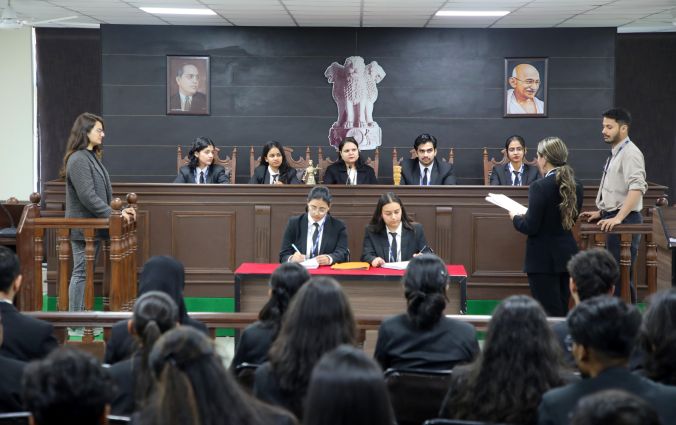
The UK is considered to be one of the top global destinations to pursue a law degree at both Bachelor’s and Master’s levels. Many international students consider the UK due to its centuries-old legal system and highly regarded qualifications worldwide. Dating back over 900 years, the UK legal system has influenced legal frameworks across the globe, adding to its appeal as a destination for legal studies.
The UK follows the English Common Law system, which is in turn followed in over 80 countries, making the UK’s LLM degree widely valued. In the QS World University Rankings 2025, 5 colleges in the top 20 are in the UK. Moreover, the Graduate Route allows eligible international students to remain in the UK for up to two years after finishing their studies—or up to three years for doctoral graduates—which allows them to work and gain valuable work experience, build their professional network, and grow in their career. The average salary per year for solicitors in the UK is between £30,000 to £80,000. The UK is one of the highly preferred destinations for global education with a strong student community, people from varied cultures, hands-on learning, and the presence of top global law firms.
Suggestions on the top specialisations students can consider pursuing in the UK under Master of Laws (LLM) degree:
- Corporate Law (LLM)
Corporate Law focuses on the legal aspects of running businesses, from mergers and acquisitions to corporate governance and financial compliance. As global trade and investment flows increase, corporate lawyers are increasingly in demand within top-tier law firms, financial institutions, consultancy firms, and multinational corporations. Students need to have a prior law degree or previous work experience with a law firm to pursue this specialisation.
- Commercial Law (LLM)
Commercial Law focuses on trade law, commercial contracts, international arbitration, and dispute resolution. As global trade expands, legal experts trained in commercial law become invaluable to businesses, export organisations, and legal advisory services engaged in cross-border ventures.
- International Law (LLM)
International Law delves into international human rights, conflict resolution, international organisations, diplomatic law, and treaty law. Graduates often engage with the UN, policy think tanks, NGOs, or diplomatic services. UK frameworks support global perspectives and foster critical thinking through comparative law studies. Even students from non-law backgrounds, such as related social science backgrounds can opt for this.
- Intellectual Property Law (LLM)
Intellectual Property Law addresses patents, trademarks, copyrights, licences, and innovation protection. In an era driven by technology, startups, and creative industries, IP specialists are crucial—employed by tech firms, patent agencies, entertainment houses, and as in-house counsel. Some universities allow students from science, engineering, or creative backgrounds can also apply.
(This listicle was provided by IDP Education, Pic :courtesy LPU)








